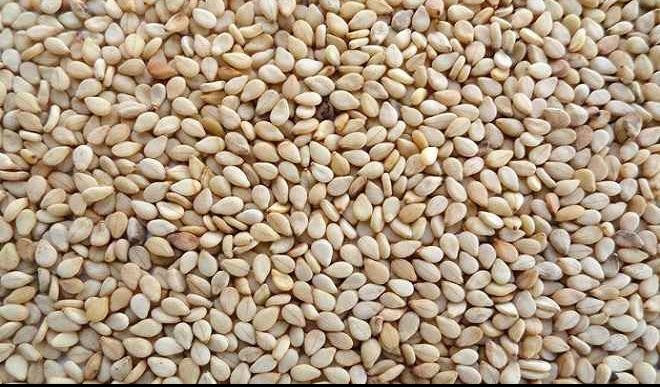Farmers can make fortune from sesame seed – Experts
Sesame seed, also known as beniseed, is cultivated in various regions around the world and is widely valued for its high nutritional and health benefits. In Nigeria, experts say it is the second highest agro-commodity foreign exchange earner after cocoa. Sesame seeds’ annual output, according to the President, National Sesame Seed Association of Nigeria, Alhaji […]


Sesame seed, also known as beniseed, is cultivated in various regions around the world and is widely valued for its high nutritional and health benefits. In Nigeria, experts say it is the second highest agro-commodity foreign exchange earner after cocoa.
Sesame seeds’ annual output, according to the President, National Sesame Seed Association of Nigeria, Alhaji Sheriff Balogun, is estimated at about 200,000 tonnes to 250,000 tonnes, which he described as very low and in dire need of improvement.
He said a tonne sold for about N180, 000 around August last year, but rose sharply to about N500, 000 to N550, 000 around January and February this year.
Alhaji Balogun said Nigerian farmers and the government could make fortunes from the crop if it is well promoted and cultivated in many states across the country.
The expert disclosed that presently, Taraba, Nasarawa, Benue and Jigawa states are the four major sesame seed-producing states, while Kogi, Katsina, Adamawa, Kebbi, Gombe and Northern Cross River, among others, also produce the crop.
To farm sesame seed successfully, he advised farmers to go for high yielding and disease-resistant varieties such as Kenana 44, which yields about 1tonne per hectare compared to between 0.5 tonnes to 0.7 tonnes per hectare they used to get.
The expert said best agronomic practices and timeliness of activities are key to getting bumper harvest, adding that planting time for the crop varied from place to place depending on rainfall pattern.
“It’s planted between June and October depending on rainfall pattern and location. Farmers should heed to rainfall prediction as sesame seed doesn’t like plenty of water,” he noted.
With plenty of water, he stressed; “Instead of giving you the seed, it gives you the leaf, even as the leaf is used for cooking soup, the economic value of the seed is higher.”
On fertiliser application, he advised farmers to apply three bags of NPK fertiliser and one bag of Urea per hectare at the right time to get the best result.
Alhaji Balogun also advised farmers to weed after germination of the seeds except if they had earlier applied pre-emergence herbicides because the crop doesn’t like weeds.
The second weeding, he stated, should be done mid-way into the establishment of the crop which matures in three months.
The farmer said sesame seed which cost about N50, 000 to N70, 000 per hectare to cultivate could be inter-cropped with beans or sorghum, among others for diversified income.
He said sesame seed oil was the healthiest oil used for food and in pharmaceutical and cosmetic industries, while urging the government to pay accelerated attention to the crop by rolling out a five-year development plan to boost its production and generate employment in the country.
Another sesame seed farmer, Mr Abu Haruna, said about 90 per cent of the crop produced in the country was exported and he called on government and farmers to concentrate on its production so as to earn more foreign exchange.
